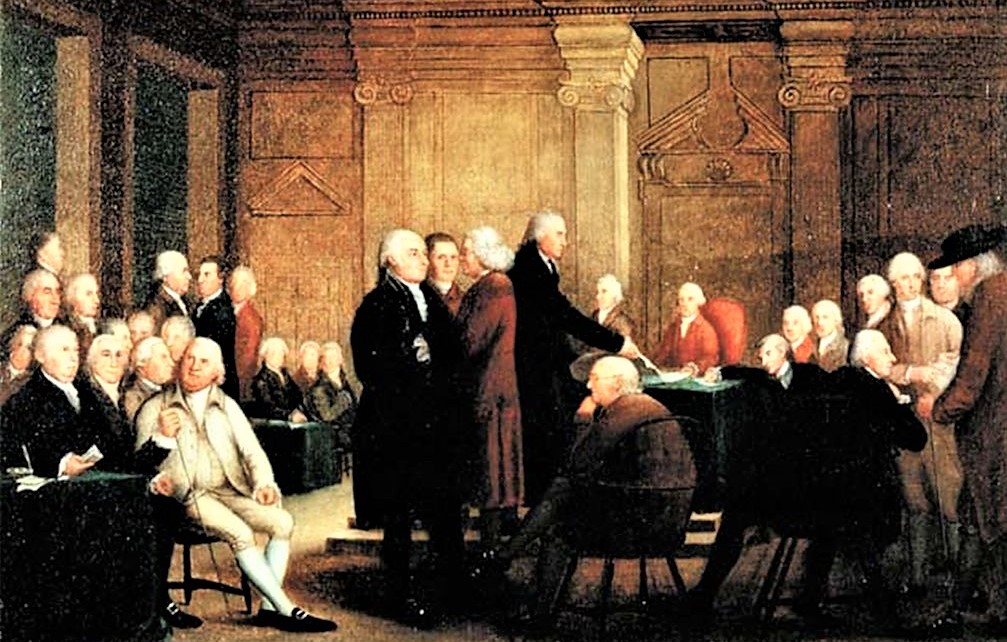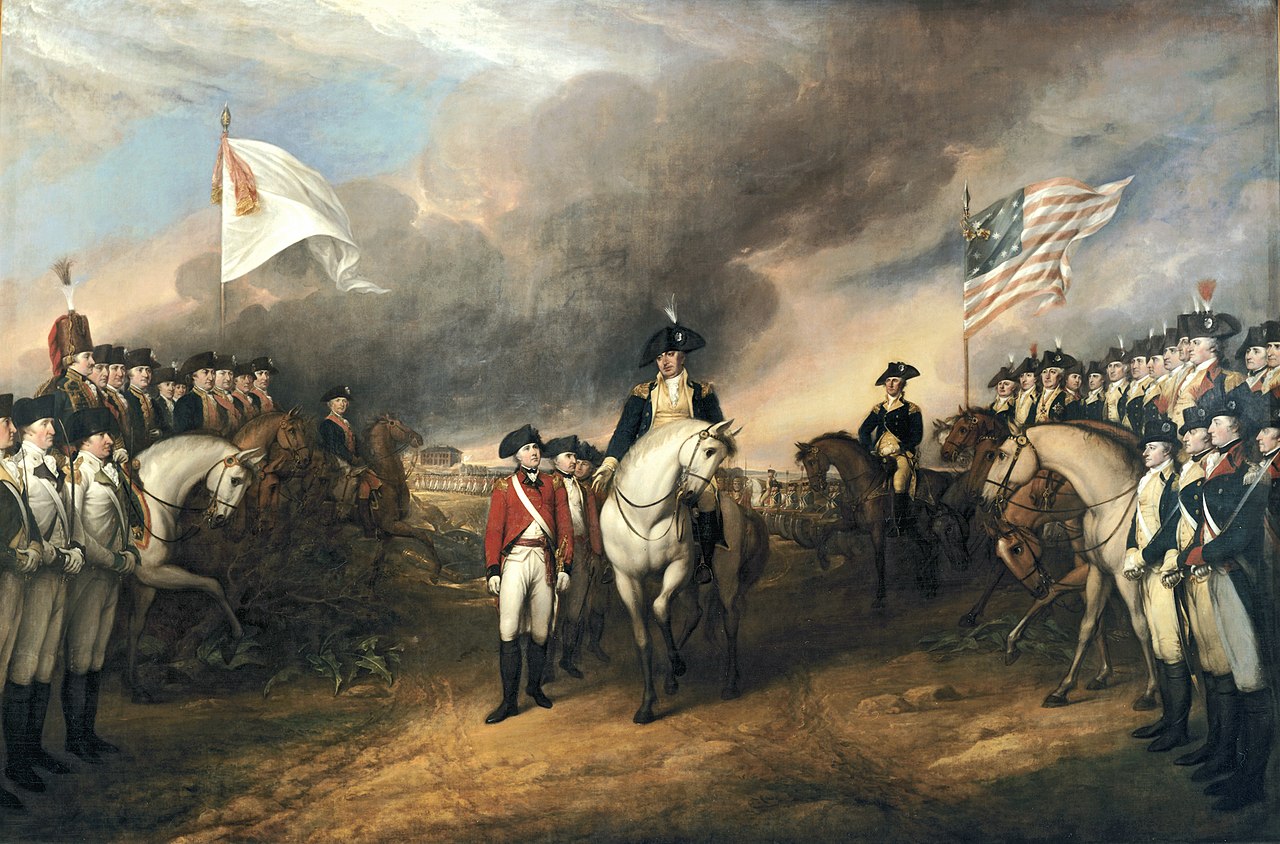
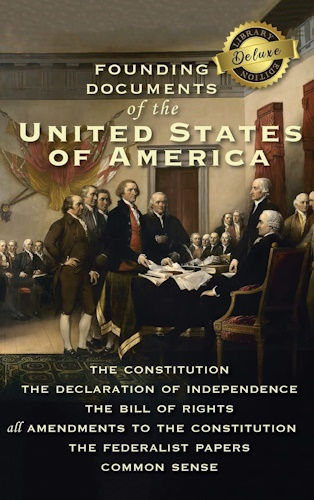
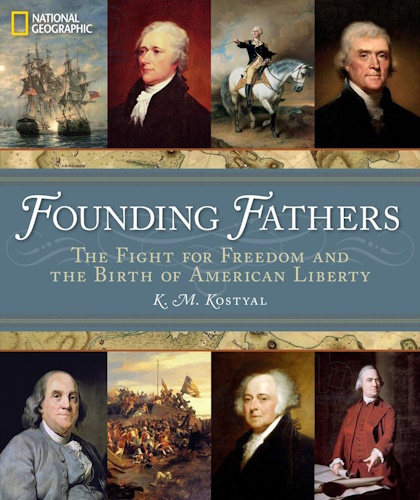
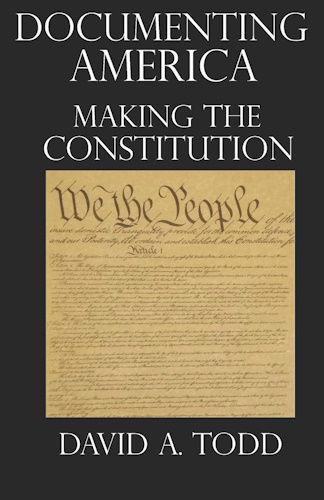


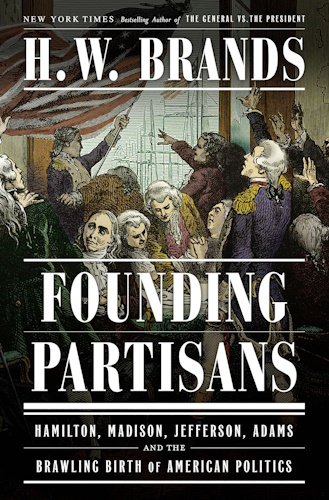
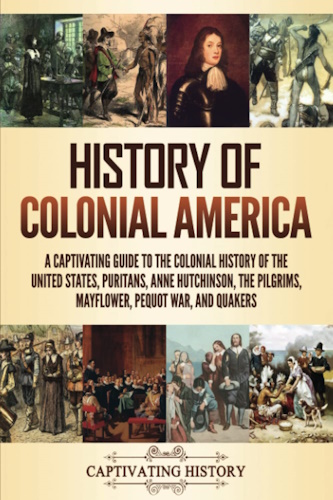
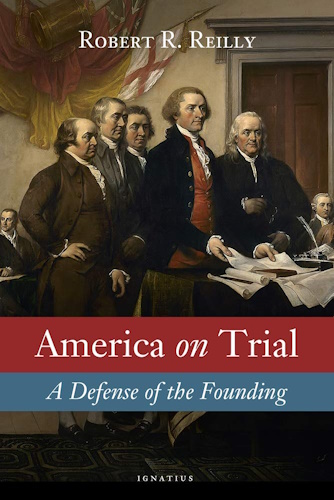
Articles of Confederation
- 1777 -
(Retrieved from archive.org)
The research, work, and dedication
Of
Barefoot Bob Hardison
August 8th, 1933 - January 31st, 2009
![]()
After the ratification of the Declaration of Independence, establishing the "united colonies" as Free and Independent States, the Continental Congress set to work on the task of drawing up a document that would provide a legal framework for that Union, and which would be enforceable as the law of the new land.
The Articles were written during the early part of the American Revolution by a committee of the Second Continental Congress of the now independent thirteen sovereign states. The head of the committee, John Dickinson, who had refused to sign the Declaration of Independence, nevertheless adhering to the will of the majority of the members of the Continental Congress, presented a report on the proposed articles to the Congress on July 12, 1776, eight days after the signing of the Declaration of Independence. Dickinson initially proposed a strong central government, with control over the western lands, equal representation for the states, and the power to levy taxes.
Because of their experience with Great Britain, the 13 states feared a powerful central government. Consequently, they changed Dickinson's proposed articles drastically before they sent them to all the states for ratification in November 1777. The Continental Congress had been careful to give the states as much independence as possible. The Articles deliberately established a confederation of sovereign states, carefully specifying the limited functions of the federal government. Despite these precautions, several years passed before all the states ratified the articles. The delay resulted from preoccupation with the revolution and from disagreements among the states. These disagreements included quarrels over boundary lines, conflicting decisions by state courts, differing tariff laws, and trade restrictions between states.
The small states wanted equal representation with the large states in Congress, and the large states were afraid they would have to pay an excessive amount of money to support the federal government. In addition, the states disagreed over control of the western territories. The states with no frontier borders wanted the government to control the sale of these territories so that all the states profited. On the other hand, the states bordering the frontier wanted to control as much land as they could.
Eventually the states agreed to give control of all western lands to the federal government, paving the way for final ratification of the articles on March 1, 1781, just seven and a half months before the surrender of Lord Cornwallis and his British Army at Yorktown, October 19, 1781, the victory ended fighting in the War of Independence and virtually assured success to the American cause. Almost the entire war for five long years had been prosecuted by the members of the Second Continental Congress as representatives of a loose federation of states with no constitution, acting at many times only on their own individual strengths, financial resources and reputations.
Under the Articles, on paper, the Congress had power to regulate foreign affairs, war, and the postal service and to appoint military officers, control Indian affairs, borrow money, determine the value of coin, and issue bills of credit. In reality, however, the Articles gave the Congress no power to enforce its requests to the states for money or troops, and by the end of 1786 governmental effectiveness had broken down.
Nevertheless, some solid accomplishments had been achieved: certain state claims to western lands were settled, and the Northwest Ordinance of 1787 established the fundamental pattern of evolving government in the territories north of the Ohio River. Equally important, the Confederation provided the new nation with instructive experience in self-government under a written document. In revealing their own weaknesses, the Articles paved the way for the Constitutional Convention of 1787 and the present form of U.S. government.
The Articles were in force from March 1, 1781, to March 4, 1789, when the present Constitution of the United States went into effect. During those years the 13 states were struggling to achieve their independent status, and the Articles of Confederation stood them in good stead in the process and exercise of learning self-government.
The Provisions of the Articles
The articles created a loose confederation of independent states that gave limited powers to a central government. The national government would consist of a single house of Congress, where each state would have one vote. Congress had the power to set up a postal department, to estimate the costs of the government and request donations from the states, to raise armed forces, and to control the development of the western territories. With the consent of nine of the thirteen states, Congress could also coin, borrow, or appropriate money as well as declare war and enter into treaties and alliances with foreign nations.
There was no independent executive and no veto of legislation. Judicial proceedings in each state were to be honored by all other states. The federal government had no judicial branch, and the only judicial authority Congress had was the power to arbitrate disputes between states. Congress was denied the power to levy taxes; the new federal government was financed by donations from the states based on the value of each state's lands. Any amendment to the articles required the unanimous approval of all 13 states.
Weaknesses
In attempting to limit the power of the central government, the Second Continental Congress created one without sufficient power to govern effectively, which led to serious national and international problems. The greatest weakness of the federal government under the Articles of Confederation was its inability to regulate trade and levy taxes. Sometimes the states refused to give the government the money it needed, and they engaged in tariff wars with one another, almost paralyzing interstate commerce. The government could not pay off the debts it had incurred during the revolution, including paying soldiers who had fought in the war and citizens who had provided supplies to the cause. Congress could not pass needed measures because they lacked the nine-state majority required to become laws. The states largely ignored Congress, which was powerless to enforce cooperation, and it was therefore unable to carry out its duties.
After the Colonial victory in the Revolutionary War, it became obvious to the Founding Fathers that the original attempt would not be equal to the task of providing the equitable law which they sought.
Congress could not force the states to adhere to the terms of the Treaty of Paris of 1783 ending the American Revolution, which was humiliating to the new government, especially when some states started their own negotiations with foreign countries. In addition, the new nation was unable to defend its borders from British and Spanish encroachment because it could not pay for an army when the states would not contribute the necessary funds.
Leaders like Alexander Hamilton of New York and James Madison of Virginia criticized the limits placed on the central government, and General George Washington is said to have complained that the federation was "little more than a shadow without substance."
On February 21, 1787, Congress called for a Constitutional Convention to be held in May to revise the articles. Between May and September, the convention wrote the present Constitution for the United States, which retained some of the features of the Articles of Confederation but gave considerably more power to the federal government. The new Constitution provided for executive and judicial branches of government, lacking in the Articles, and allowed the government to tax its citizens.
See Debates In The Constitutional Convention, May 14 - September 17, 1787
See below - The Forgotten Presidents of the United States under the Articles of Confederation
The Articles of Confederation
To all to whom these Presents shall come, we the undersigned Delegates of the States affixed to our Names, send greeting
Whereas the Delegates of the United States of America, in Congress assembled, did, on the 15th day of November, in the Year of Our Lord One thousand Seven Hundred and Seventy seven, and in the Second Year of the Independence of America, agree to certain articles of Confederation and perpetual Union between the States of New-hampshire, Massachusetts-bay, Rhode-island and Providence Plantations, Connecticut, New York, New Jersey, Pennsylvania, Delaware, Maryland, Virginia, North-Carolina, South-Carolina, and Georgia in the words following, viz.
"Articles of Confederation and perpetual Union between the states of New-hampshire, Massachusetts-bay, Rhode-island and Providence Plantations, Connecticut, New-York, New-Jersey, Pennsylvania, Delaware, Maryland, Virginia, North-Carolina, South-Carolina and Georgia".
Article I.The Stile of this confederacy shall be "The United States of America".
Article II. Each state retains its sovereignty, freedom, and independence, and every Power, Jurisdiction and right, which is not by this confederation expressly delegated to the United States, in Congress assembled.
Article III. The said states hereby severally enter into a firm league of friendship with each other, for their common defence, the security of their Liberties, and their mutual and general welfare, binding themselves to assist each other, against all force offered to, or attacks made upon them, or any of them, on account of religion, sovereignty, trade, or any other pretence whatever.
Article IV. The better to secure and perpetuate mutual friendship and intercourse among the people of the different states in this union, the free inhabitants of each of these states, paupers, vagabonds and fugitives from justice excepted, shall be entitled to all privileges and immunities of free citizens in the several states; and the people of each state shall have free ingress and regress to and from any other state, and shall enjoy therein all the privileges of trade and commerce, subject to the same duties impositions and restrictions as the inhabitants thereof respectively, provided that such restriction shall not extend so far as to prevent the removal of property imported into any state, to any other state, of which the Owner is an inhabitant; provided also that no imposition, duties or restriction shall be laid by any state, on the property of the united states, or either of them. If any Person guilty of, or charged with treason, felony, - or other high misdemeanor in any state, shall flee from Justice, and be found in any of the united states, he shall, upon demand of the Governor or executive power, of the state from which he fled, be delivered up and removed to the state having jurisdiction of his offence. Full faith and credit shall be given in each of these states to the records, acts and judicial proceedings of the courts and magistrates of every other state.
Article V. For the more convenient management of the general interests of the united states, delegates shall be annually appointed in such manner as the legislature of each state shall direct, to meet in Congress on the first Monday in November, in every year, with a power reserved to each state, to recal its delegates, or any of them, at any time within the year, and to send others in their stead, for the remainder of the Year. No state shall be represented in Congress by less than two, nor by more than seven Members; and no person shall be capable of being a delegate for more than three years in any term of six years; nor shall any person, being a delegate, be capable of holding any office under the united states, for which he, or another for his benefit receives any salary, fees or emolument of any kind. Each state shall maintain its own delegates in a meeting of the states, and while they act as members of the committee of the states. In determining questions in the united states in Congress assembled, each state shall have one vote.
Freedom of speech and debate in Congress shall not be impeached or questioned in any Court, or place out of Congress, and the members of congress shall be protected in their persons from arrests and imprisonments, during the time of their going to and from, and attendance on congress, except for treason, felony, or breach of the peace.
Article VI. No state, without the Consent of the united states in congress assembled, shall send any embassy to, or receive any embassy from, or enter into any conference agreement, alliance or treaty with any King prince or state; nor shall any person holding any office of profit or trust under the united states, or any of them, accept of any present, emolument, office or title of any kind whatever from any king, prince or foreign state; nor shall the united states in congress assembled, or any of them, grant any title of nobility.
No two or more states shall enter into any treaty, confederation or alliance whatever between them, without the consent of the united states in congress assembled, specifying accurately the purposes for which the same is to be entered into, and how long it shall continue.
No state shall lay any imposts or duties, which may interfere with any stipulations in treaties, entered into by the united states in congress assembled, with any king, prince or state, in pursuance of any treaties already proposed by congress, to the courts of France and Spain.
No vessels of war shall be kept up in time of peace by any state, except such number only, as shall be deemed necessary by the united states in congress assembled, for the defence of such state, or its trade; nor shall any body of forces be kept up by any state, in time of peace, except such number only, as in the judgment of the united states, in congress assembled, shall be deemed requisite to garrison the forts necessary for the defence of such state; but every state shall always keep up a well regulated and disciplined militia, sufficiently armed and accoutered, and shall provide and constantly have ready for use, in public stores, a due number of field pieces and tents, and a proper quantity of arms, ammunition and camp equipage.
No state shall engage in any war without the consent of the united states in congress assembled, unless such state be actually invaded by enemies, or shall have received certain advice of a resolution being formed by some nation of Indians to invade such state, and the danger is so imminent as not to admit of a delay till the united states in congress assembled can be consulted: nor shall any state grant commissions to any ships or vessels of war, nor letters of marque or reprisal, except it be after a declaration of war by the united states in congress assembled, and then only against the kingdom or state and the subjects thereof, against which war has been so declared, and under such regulations as shall be established by the united states in congress assembled, unless such state be infested by pirates, in which case vessels of war may be fitted out for that occasion, and kept so long as the danger shall continue, or until the united states in congress assembled, shall determine otherwise.
Article VII. When land-forces are raised by any state for the common defence, all officers of or under the rank of colonel, shall be appointed by the legislature of each state respectively, by whom such forces shall be raised, or in such manner as such state shall direct, and all vacancies shall be filled up by the State which first made the appointment.
Article VIII. All charges of war, and all other expences that shall be incurred for the common defence or general welfare, and allowed by the united states in congress assembled, shall be defrayed out of a common treasury, which shall be supplied by the several states in proportion to the value of all land within each state, granted to or surveyed for any Person, as such land and the buildings and improvements thereon shall be estimated according to such mode as the united states in congress assembled, shall from time to time direct and appoint. The taxes for paying that proportion shall be laid and levied by the authority and direction of the legislatures of the several states within the time agreed upon by the united states in congress assembled.
Article IX. The united states in congress assembled, shall have the sole and exclusive right and power of determining on peace and war, except in the cases mentioned in the sixth article--of sending and receiving ambassadors--entering into treaties and alliances, provided that no treaty of commerce shall be made whereby the legislative power of the respective states shall be restrained from imposing such imposts and duties on foreigners as their own people are subjected to, or from prohibiting the exportation or importation of any species of goods or commodities, whatsoever--of establishing rules for deciding in all cases, what captures on land or water shall be legal, and in what manner prizes taken by land or naval forces in the service of the united states shall be divided or appropriated--of granting letters of marque and reprisal in times of peace--appointing courts for the trial of piracies and felonies committed on the high seas and establishing courts for receiving and determining finally appeals in all cases of captures, provided that no member of congress shall be appointed a judge of any of the said courts.
The united states in congress assembled shall also be the last resort on appeal in all disputes and differences now subsisting or that hereafter may arise between two or more states concerning boundary, jurisdiction or any other cause whatever; which authority shall always be exercised in the manner following. Whenever the legislative or executive authority or lawful agent of any state in controversy with another shall present a petition to congress stating the matter in question and praying for a hearing, notice thereof shall be given by order of congress to the legislative or executive authority of the other state in controversy, and a day assigned for the appearance of the parties by their lawful agents, who shall then be directed to appoint by joint consent, commissioners or judges to constitute a court for hearing and determining the matter in question: but if they cannot agree, congress shall name three persons out of each of the united states, and from the list of such persons each party shall alternately strike out one, the petitioners beginning, until the number shall be reduced to thirteen; and from that number not less than seven, nor more than nine names as congress shall direct, shall in the presence of congress be drawn out by lot, and the persons whose names shall be so drawn or any five of them, shall be commissioners or judges, to hear and finally determine the controversy, so always as a major part of the judges who shall hear the cause shall agree in the determination: and if either party shall neglect to attend at the day appointed, without showing reasons, which congress shall judge sufficient, or being present shall refuse to strike, the congress shall proceed to nominate three persons out of each state, and the secretary of congress shall strike in behalf of such party absent or refusing; and the judgment and sentence of the court to be appointed, in the manner before prescribed, shall be final and conclusive; and if any of the parties shall refuse to submit to the authority of such court, or to appear or defend their claim or cause, the court shall nevertheless proceed to pronounce sentence, or judgment, which shall in like manner be final and decisive, the judgment or sentence and other proceedings being in either case transmitted to congress, and lodged among the acts of congress for the security of the parties concerned: provided that every commissioner, before he sits in judgment, shall take an oath to be administered by one of the judges of the supreme or superior court of the state, where the cause shall be tried, --well and truly to hear and determine the matter in question, according to the best of his judgment, without favour, affection or hope of reward: --provided also, that no state shall be deprived of territory for the benefit of the united states.
All controversies concerning the private right of soil claimed under different grants of two or more states, whose jurisdictions as they may respect such lands, and the states which passed such grants are adjusted, the said grants or either of them being at the same time claimed to have originated antecedent to such settlement of jurisdiction, shall on the petition of either party to the congress of the united states, be finally determined as near as may be in the same manner as is before prescribed for deciding disputes respecting territorial jurisdiction between different states. The united states in congress assembled shall also have the sole and exclusive right and power of regulating the alloy and value of coin struck by their own authority, or by that of the respective states--fixing the standard of weights and measures throughout the united states--regulating the trade and managing all affairs with the Indians, not members of any of the states, provided that the legislative right of any state within its own limits be not infringed or violated--establishing or regulating post offices from one state to another, throughout all the united states, and exacting such postage on the papers passing thro' the same as may be requisite to defray the expences of the said office--appointing all officers of the land forces, in the service of the united states, excepting regimental officers--appointing all the officers of the naval forces, and commissioning all officers whatever in the service of the united states--making rules for the government and regulation of the said land and naval forces, and directing their operations.
The united states in congress assembled shall have authority to appoint a committee, to sit in the recess of congress, to be denominated "A Committee of the States," and to consist of one delegate from each state; and to appoint such other committees and civil officers as may be necessary for managing the general affairs of the united states under their direction--to appoint one of their number to preside, provided that no person be allowed to serve in the office of president more than one year in any term of three years; to ascertain the necessary sums of money to be raised for the service of the united states, and to appropriate and apply the same for defraying the public expences to borrow money, or emit bills on the credit of the united states, transmitting every half year to the respective states an account of the sums of money so borrowed or emitted,--to build and equip a navy--to agree upon the number of land forces, and to make requisitions from each state for its quota, in proportion to the number of white inhabitants in such state; which requisition shall be binding, and thereupon the legislature of each state shall appoint the regimental officers, raise the men and cloth, arm and equip them in a soldier like manner, at the expence of the united states; and the officers and men so cloathed, armed and quipped shall march to the place appointed, and within the time agreed on by the united states in congress assembled: But if the united states in congress assembled shall, on consideration of circumstances judge proper that any state should not raise men, or should raise a smaller number than its quota, and that any other state should raise a greater number of men than the quota thereof, such extra number shall be raised, officered, cloathed, armed and equipped in the same manner as the quota of such state, unless the legislature of such state shall judge that such extra number cannot be safely spared out of the same, in which case they shall raise officer, cloath, arm and equip as many of such extra number as they judge can be safely spared. And the officers and men so cloathed, armed and equipped, shall march to the place appointed, and within the time agreed on by the united states in congress assembled.
The united states in congress assembled shall never engage in a war, nor grant letters of marque and reprisal in time of peace, nor enter into any treaties or alliances, nor coin money, nor regulate the value thereof, nor ascertain the sums and expences necessary for the defence and welfare of the united states, or any of them, nor emit bills, nor borrow money on the credit of the united states, nor appropriate money, nor agree upon the number of vessels of war, to be built or purchased, or the number of land or sea forces to be raised, nor appoint a commander in chief of the army or navy, unless nine states assent to the same: nor shall a question on any other point, except for adjourning from day to day be determined, unless by the votes of a majority of the united states in congress assembled. The congress of the united states shall have power to adjourn to any time within the year, and to any place within the united states, so that no period of adjournment be for a longer duration than the space of six Months, and shall publish the Journal of their proceedings monthly, except such parts thereof relating to treaties, alliances or military operations, as in their judgment require secrecy; and the yeas and nays of the delegates of each state on any question shall be entered on the Journal, when it is desired by any delegate; and the delegates of a state, or any of them, at his or their request shall be furnished with a transcript of the said Journal, except such parts as are above excepted, to lay before the legislatures of the several states.
Article X. The committee of the states, or any nine of them, shall be authorized to execute, in the recess of congress, such of the powers of congress as the united states in congress assembled, by the consent of nine states, shall from time to time think expedient to vest them with; provided that no power be delegated to the said committee, for the exercise of which, by the articles of confederation, the voice of nine states in the congress of the united states assembled is requisite.
Article XI. Canada acceding to this confederation, and joining in the measures of the united states, shall be admitted into, and entitled to all the advantages of this union: but no other colony shall be admitted into the same, unless such admission be agreed to by nine states.
Article XII. All bills of credit emitted, monies borrowed and debts contracted by, or under the authority of congress, before the assembling of the united states, in pursuance of the present confederation, shall be deemed and considered as a charge against the united states, for payment and satisfaction whereof the said united states, and the public faith are hereby solemnly pledged.
Article XIII. Every state shall abide by the determinations of the united states in congress assembled, on all questions which by this confederation are submitted to them. And the Articles of this confederation shall be inviolably observed by every state, and the union shall be perpetual; nor shall any alteration at any time hereafter be made in any of them; unless such alteration be agreed to in a congress of the united states, and be afterwards confirmed by the legislatures of every state.
And Whereas it hath pleased the Great Governor of the World to incline the hearts of the legislatures we respectively represent in congress, to approve of, and to authorize us to ratify the said articles of confederation and perpetual union. Know Ye that we the undersigned delegates, by virtue of the power and authority to us given for that purpose, do by these presents, in the name and in behalf of our respective constituents, fully and entirely ratify and confirm each and every of the said articles of confederation and perpetual union, and all and singular the matters and things therein contained: And we do further solemnly plight and engage the faith of our respective constituents, that they shall abide by the determinations of the united states in congress assembled, on all questions, which by the said confederation are submitted to them. And that the articles thereof shall be inviolably observed by the states we respectively represent, and that the union shall be perpetual. In Witness whereof we have hereunto set our hands in Congress. Done at Philadelphia in the state of Pennsylvania the ninth day of July in the Year of our Lord one Thousand seven Hundred and Seventy-eight, and in the third year of the independence of America.
On the part of & behalf of the State of New Hampshire:
Josiah Bartlett, John Wentworth. Junr -August 8th, 1778.
On the part and behalf of the State of Rhode-Island and Providence Plantations:
William Ellery, Henry Marchant, John Collins.
On the part and behalf of the State of New York:
Jas Duane, Fra: Lewis, Wm Duer, Gouvr Morris.
On the part and behalf of the State of Pennsylvania:
Robert Morris, Daniel Roberdeau, Jon. Bayard Smith, William Clingar, Joseph Reed -22d July, 1778.
On the part and behalf of the State of Maryland:
John Hanson, Daniel Carroll -March 1, 1781
On the part and behalf of the State of North Carolina:
John Penn, Corns Harnett, Jno Williams. -July 21st, 1778
On the part and behalf of the State of Georgia:
Jno Walton, Edwd Telfair, Edwd Langworthy. -24th July, 1778
On the part of & behalf of the State of Massachusetts Bay:
John Hancock, Samuel Adams, Elbridge Gerry, Francis Dana, James Lovell, Samuel Holten.
On the part and behalf of the State of Connecticut:
Roger Sherman, Samuel Huntington, Oliver Wolcott, Titus Hosmer, Andrew Adams
On the Part and in Behalf of the State of New Jersey:
Jno Witherspoon, Nathl Scudder. -November 26th, 1778
On the part and behalf of the State of Delaware:
Thos McKean, Febr 22d, 1779, John Dickinson, May 5th, 1779, Nicholas Van Dyke.
On the part and behalf of the State of Virginia:
Richard Henry Lee, John Banister, Thomas Adams, Jno Harvie, Francis Lightfoot Lee.
On the part and behalf of the State of South Carolina:
Henry Laurens, William Henry Drayton, Jno Mathews, Richd Hutson, Thos Heyward, junr.
Footnote - It is probable that the delegates from the same State, having signed the Articles of Confederation at different times as appears by the dates, affixed their names as they happened to be present in Congress, after they had been authorized by their constituents.
The Forgotten Presidents
of the Continental Congresses and the United States
under the Articles of Confederation
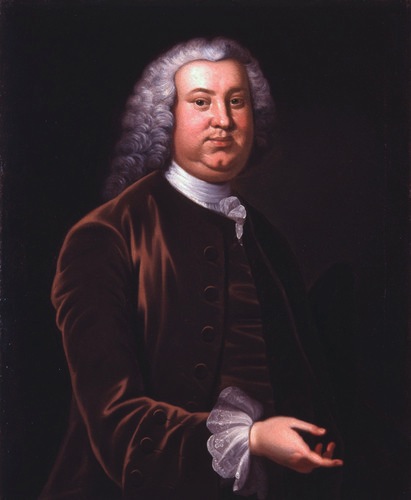
Peyton Randolph (Born ca. 1721, died 1775) - Served the First Continental Congress from September 5, 1774 until October 21, 1774 and the Second Continental Congress from May 10, 1775 to May 24, 1775, resigning due to ill health, and succeeded by John Hancock.
When he returned to Williamsburg after presiding over the Continental Congress in 1775, Peyton Randolph was on the black list of patriots the redcoats proposed to arrest and hang. The city's volunteer company of militia offered him its protection in an address that concluded: "MAY HEAVEN GRANT YOU LONG TO LIVE THE FATHER OF YOUR COUNTRY, AND THE FRIEND TO FREEDOM AND HUMANITY!"
If his friend George Washington succeeded him to the title of America's patrimonial honors, Randolph nevertheless did as much as any Virginian to bring the new nation into the world. He presided over every important Virginia assembly in the years leading to the Revolution, was among the first of the colony's great men to oppose the Stamp Act, chaired the first meeting of the delegates of 13 colonies at Philadelphia in 1774, and chaired the second in 1775.
He had been born 54 years before--probably in Williamsburg--the second son of Sir John and Lady Susannah Randolph. His first name was his maternal grandmother's maiden name, just as his older brother Beverley's was their mother's. The surname Randolph identified him as a scion of 18th-century Virginia's most powerful clan.
When he was three or four years old, the family moved into the imposing wooden home on Market Square now known as the Peyton Randolph House. His father, among Virginia's most distinguished attorneys, Speaker of the House of Burgesses, and a wealthy man, died when Peyton was 16, leaving the house and other property for him in trust with his mother. The will also gave Peyton his father's extensive library in the hope he would "betake himself to the study of law." By then, he had a brother John and a sister Mary.
Attentive to his father's wishes, he attended the College of William and Mary, then learned the law in London's Inns of Court. He entered the Middle Temple on October 13, 1739, and took a place at the bar February 10, 1743. Returning to Williamsburg, he was appointed the colony's attorney general by Governor William Gooch on May 7, 1744. His father had filled the office before him, and his brother would assume the role after.
When he turned 24, Randolph reached the age set for his inheritance. On March 8, 1746, he married Betty Harrison, and on July 21 (more than two years after his return), he qualified himself for the private practice of law in York County.
His cousin Thomas Jefferson may have shed some light on the delay in a character sketch he wrote of Randolph years later. "He was indeed a most excellent man," Jefferson said, but "heavy and inert in body, he was rather too indolent and careless for business."
He was, as well, occupied with myriad public duties. In 1747 he became a vestryman of Bruton Parish Church, in 1748 Williamsburg's representative in the house of Burgesses, and in 1749 a justice of the peace. He returned to the House in 1752 as the burgess for the college, and on December 15, 1753, the house hired him as its special agent for some ticklish business in London.
Soon after he arrived in Virginia in 1751, Governor Robert Dinwiddie had begun to exercise a right no governor had before: the imposition of a fee for certifying land patents. For his signature, Dinwiddie demanded a pistole, a Spanish coin worth about 20 shillings. Regarding the fee as an unauthorized tax, Virginians objected, though to no result.
Peyton Randolph was dispatched to England as the house's agent, with directions to go over the governor's head. But as attorney general, it was his duty to represent the interests of the Crown, of which Dinwiddie was the principal representative in Virginia. Randolph was attacking the right of the governor he was appointed to defend.
The governor refused to give Peyton Randolph permission to leave the colony, but he left anyway. In London, he had to answer for his action, and he was ousted from the attorney general's office. Dinwiddie had already named George Wythe as acting attorney general in Randolph's place.
Nevertheless, the London officials pointedly suggested that Dinwiddie reconsider his fee and said that they would have no objection to Peyton Randolph's reinstatement if he apologized. So he did, and subsequently resumed office soon after his return to Williamsburg.
Reelected burgess for the college in 1755, he involved himself the next year in a somewhat ludicrous, though harmless, attempt to promote morale during the French and Indian War. With other prominent men, he formed the Associators, a group to raise and pay bounties for private troops to join the regular force at Winchester. George Washington, in charge of the fort there, wasn't sure what he would do with the untrained men if they arrived. Not enough came, however, to cause any inconvenience.
In 1757, Randolph joined the college's board, and he served as a rector for one year. He was reelected burgess for Williamsburg in 1761, and thus entered the phase of his life that thrust him into a leadership role in the Revolution.
Word of Parliament's intended Stamp Act brought Virginians and their burgesses into conflict with the Crown itself in 1764. Peyton Randolph was appointed chairman of a committee to draft protests to the king, the House of Lords, and the House of Commons maintaining the colony's exclusive right of self-taxation.
The responsibility put him at odds with Patrick Henry, the Virginian most noted for opposition to the tax. At the end of the legislative session in 1765, Henry, a freshman, introduced seven resolutions against the act. Peyton Randolph, George Wythe, and others thought that Henry's resolutions added nothing to the colony's case and that their consideration was improper until the colony had a reply to its earlier protests.
In the final days of the session, after many opponents had left the city, Patrick Henry introduced his measures and made his "Caesar-Brutus" speech. Peyton Randolph, though not yet Speaker, was presiding. When Speaker John Robinson resumed the chair the following day (May 30), Henry carried five of his resolves by a single ballot. A tie would have allowed Robinson to cast the deciding "nay." Jefferson, standing at the chamber door, said Peyton Randolph emerged saying, "By God, I would have given one hundred guineas for a single vote."
Patrick Henry left town, and the next day his fifth (and most radical) resolution was expunged by the burgesses who remained. Nevertheless, it was reprinted with the others in newspapers across the colonies as if it stood.
Peyton Randolph was elected Speaker on November 6, 1766, succeeding the deceased Robinson and defeating Richard Henry Lee. Peyton's brother John succeeded him as attorney general the following June. By now the brothers had begun to disagree politically; John's conservatism would take him to England in 1775 while Peyton joined the rebellion.
Another set of Patrick Henry's resolves, against the Townshend Duties, came before the House in May 1769. This time Peyton Randolph approved their passage, but Governor Botetourt did not. He dissolved the assembly. The "former representatives of the people," as they called themselves, met the next day at the Raleigh Tavern with Speaker Peyton Randolph in the chair. They adopted a compact drafted by George Mason and introduced by George Washington against the importation of British goods. Speaker Randolph was the first to sign.
When the new legislature met in the winter, the governor was pleased to announce the repeal of all of the Townshend Duties, except the small one on tea. Legislative attention turned to other, calmer affairs. The next summer Peyton Randolph became chairman of the building committee for the Public Hospital.
Tempers flared again in 1773, when Great Britain proposed to transport a band of Rhode Island smugglers to England for trial. The implications for Virginia were troublesome, and the burgesses appointed a standing Committee of Correspondence and Inquiry with Speaker Peyton Randolph as chairman. The following May brought word of the closing of the port of Boston in retaliation for its Tea Party.
On May 24, 1774, Robert Carter Nicholas introduced a resolution drafted by Thomas Jefferson that read:
"This House, being deeply impressed with apprehension of the great dangers, to be derived to British America, from the hostile Invasion of the City of Boston, in our Sister Colony of Massachusetts bay, whose commerce and harbour are, on the first Day of June next, to be stopped by an Armed force, deem it highly necessary that the said first day of June be set apart, by the Members of this House, as a day of Fasting, Humiliation and Prayer, devoutly to implore the divine interposition for averting the heavy Calamity which threatens destruction to our Civil Rights, and the Evils of civil War; to give us one heart and one Mind to firmly oppose, by all just and proper means, every injury to American Rights; and that the Minds of his Majesty and his parliament, may be inspired from above with Wisdom, Moderation, and Justice, to remove from the loyal People of America, all cause of danger, from a continued pursuit of Measure, pregnant with their ruin."
It was adopted.
Governor Dunmore summoned the house on May 26 and told Peyton Randolph: "Mr. Speaker and Gentlemen of the House of Burgesses, I have in my hand a paper published by order of your House, conceived in such terms as reflect highly upon His Majesty and the Parliament of Great Britain, which makes it necessary for me to dissolve you; and you are accordingly dissolved."
On May 27, 1775, 89 burgesses gathered again at the Raleigh Tavern to form another nonimportation association, and the following day the Committee of Correspondence proposed a Continental Congress. Twenty-five burgesses met at Peyton Randolph's house on May 30 and scheduled a state convention to be held on August 1 to consider a proposal from Boston for a ban on exports to England.
Peyton Randolph led the community to Bruton Parish Church on June 1 to pray for Boston, and soon he was organizing a Williamsburg drive to send provisions and cash for its relief. The First Virginia Convention approved the export ban and elected as delegates to the Congress Peyton Randolph, Richard Henry Lee, George Washington, Patrick Henry, Richard Bland, Benjamin Harrison, and Edmund Pendleton.
On August 18, 1774, before he left Williamsburg, Peyton Randolph wrote his will, leaving his property to the use of his wife for life. They had no children. The property was to be auctioned after her death and the proceeds divided among Randolph's heirs.
When the First Continental Congress convened in Philadelphia on September 5, 1774 Thomas Lynch of South Carolina nominated Peyton Randolph to be chairman. He was elected by unanimous vote, and so became the first President of the united colonies. Delegate Silas Deane wrote Mrs. Deane: "Designed by nature for the business, of an affable, open and majestic deportment, large in size, though not out of proportion, he commands respect and esteem by his very aspect, independent of the high character he sustains."
In October 21, 1774, Peyton Randolph returned to Williamsburg to preside at an impending meeting of the house. Repeatedly postponed, it did not meet until the following June. Nonetheless, on November 9 Peyton Randolph accepted a copy of the Continental Association banning trade with England signed by nearly 500 merchants gathered in Williamsburg.
Peyton Randolph was in the chair again at the Second Virginia Convention in Richmond on March 23 when Patrick Henry rose and made his "Liberty or Death" speech in favor of the formation of a statewide militia. In reaction Governor Dunmore removed the gunpowder from Williamsburg's Magazine on April 21. Alerted to the theft, a mob gathered at the Courthouse. Peyton Randolph was one of the leaders who persuaded the crowd to disperse and averted violence.
Peyton Randolph led the Virginia delegation to the Second Continental Congress in May 1775, and he again took the chair as president. Due to ill health he resigned 14 days later. General Thomas Gage, commander of British forces in America, had been issued blank warrants for the execution of rebel leaders and a list of names with which to fill them. Peyton Randolph's name was on the list. He returned to Williamsburg under guard, and the town bells pealed to announce his safe arrival. The militia escorted him to his house and pledged to guarantee his safety.
The Third Virginia Convention reelected its speaker to Congress in July 1775, and Randolph left for Philadelphia in late August or early September. By this time, John Hancock had succeeded him to its chair.
About 8 p.m. on Sunday, October 23, 1775, Peyton Randolph began to choke, a side of his face contorted, and he died of an "apoplectic stroke." He was buried that Tuesday at Christ's Church in Philadelphia. His nephew, Edmund Randolph, brought his remains to Williamsburg in 1776, and he was interred in the family crypt in the Chapel at the College of William and Mary on November 26.
Peyton Randolph's estate was auctioned on February 19, 1783, after Betty Randolph's death. Thomas Jefferson bought his books. Among them were bound records dating to Virginia's earliest days that still are consulted by historians. Added to the collection at Monticello that Jefferson sold to the federal government years later, they became part of the core of the Library of Congress.
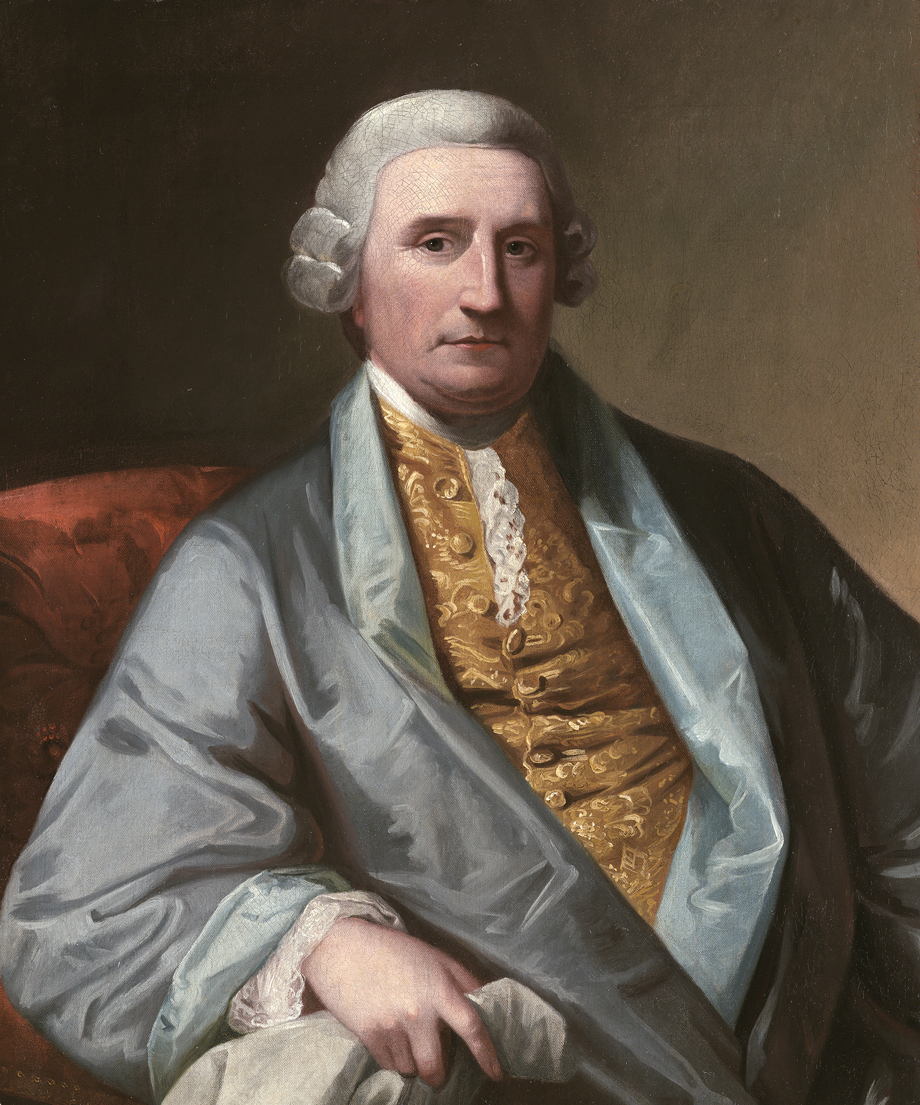
Henry Middleton (1717-1784) - Served October 22, 1774 to October 26, 1774
In 1741, Henry Middleton married Mary Williams, only daughter and heiress of John Williams, a wealthy landowner, Justice of the Peace and member of the Assembly. Mary's dowry included the house and plantation that he and Mary named Middleton Place. Here, rather than at The Oaks, they made their home. Henry Middleton was one of the most influential political leaders of his time. He held a number of high offices, was Speaker of the Commons, Commissioner for Indian Affairs, and a member of the Governor's Council until he resigned his seat in 1770 to become a leader of the opposition to British policy. He was chosen to represent South Carolina in the First Continental Congress and on October 22, 1774, was elected its President in the absence of Peyton Randolph. By this time, Henry was among the wealthiest landholders in South Carolina with more than 50,000 acres and approximately 800 slaves. For the last twenty-three years of his life he lived at his earlier home, The Oaks, returning there after the death of his wife Mary in 1761. Henry twice remarried, but his five sons and seven daughters were all children of his first wife. He relinquished Middleton Place to Arthur, his eldest son and heir.
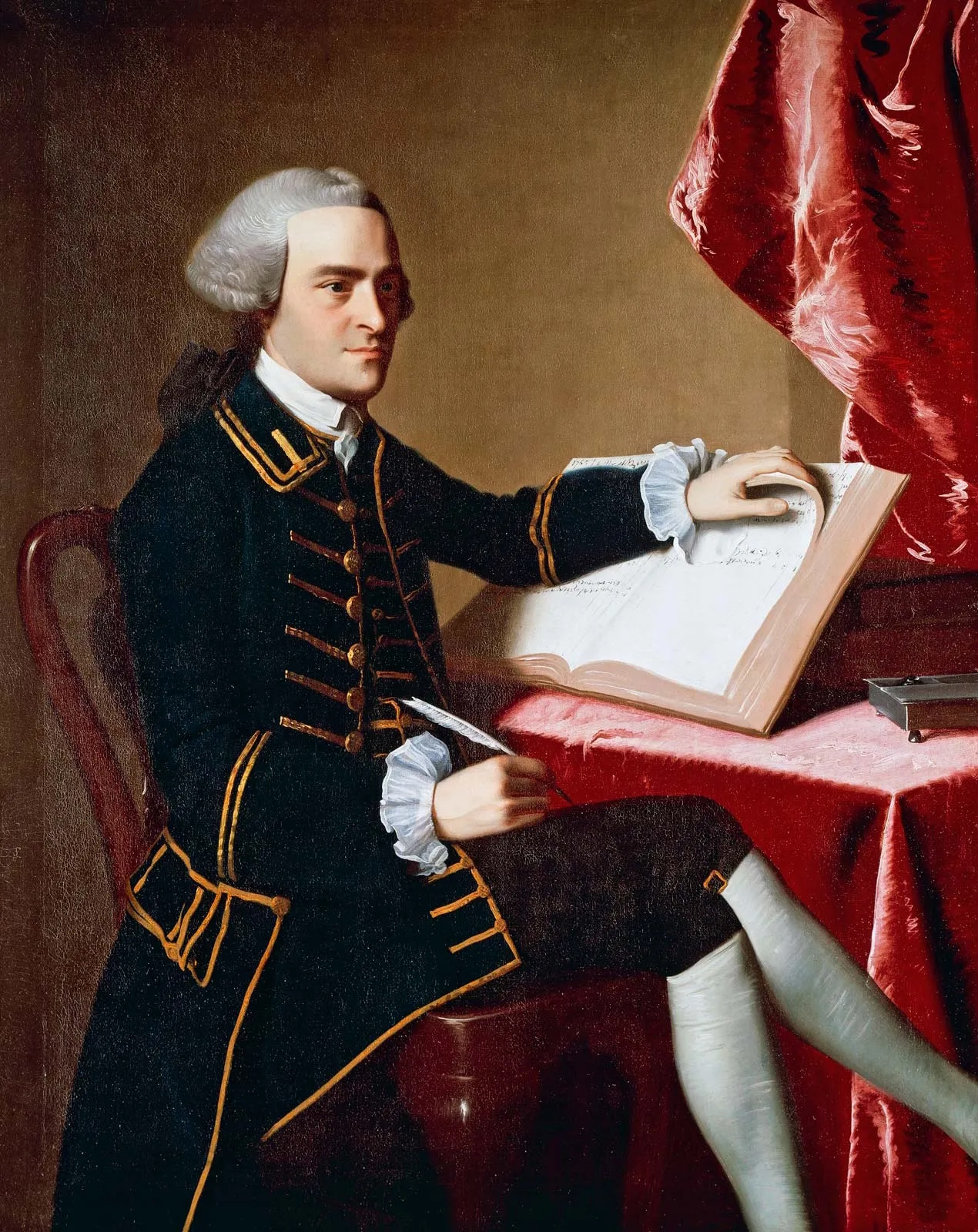
John Hancock (1737 - 1793) - Served May 24, 1775 to October 29, 1777, and again from November 23, 1885 to June 5, 1786.
The third president was a patriot, rebel leader, merchant who signed his name into immortality in giant strokes on the Declaration of Independence on July 4, 1776. The boldness of his signature has made it live in American minds as a perfect expression of the strength and freedom - and defiance - of the individual in the face of British tyranny. As President of the Continental Congress during two widely spaced terms - the first from May 24 1775 to October 30 1777 and elected the second time from November 23 1885 to May 29, 1786, never having served due to continued illness
Hancock was the presiding officer when the members approved the Declaration of Independence. Because of his position, it was his official duty to sign the document first - but not necessarily as dramatically as he did. Hancock figured prominently in another historic event - the battle at Lexington: British troops who fought there April 10, 1775, had known Hancock and Samuel Adams were in Lexington and had come there to capture these rebel leaders.
And the two would have been captured, if they had not been warned by Paul Revere. As early as 1768, Hancock defied the British by refusing to pay customs charges on the cargo of one of his ships. One of Boston's wealthiest merchants, he was recognized by the citizens, as well as by the British, as a rebel leader - and was elected President of the first Massachusetts Provincial Congress. After he was chosen President of the Continental Congress in 1775, Hancock became known beyond the borders of Massachusetts, and, having served as colonel of the Massachusetts Governor's Guards he hoped to be named commander of the American forces - until John Adams nominated George Washington. In 1778 Hancock was commissioned Major General and took part in an unsuccessful campaign in Rhode Island. But it was as a political leader that his real distinction was earned - as the first Governor of Massachusetts, as President of Congress, and as President of the Massachusetts constitutional ratification convention. He helped win ratification in Massachusetts, gaining enough popular recognition to make him a contender for the newly created Presidency of the United States, but again he saw Washington gain the prize. Like his rival, George Washington, Hancock was a wealthy man who risked much for the cause of independence. He was the wealthiest New Englander supporting the patriotic cause, and, although he lacked the brilliance of John Adams or the capacity to inspire of Samuel Adams, he became one of the foremost leaders of the new nation - perhaps, in part, because he was willing to commit so much at such risk to the cause of freedom.
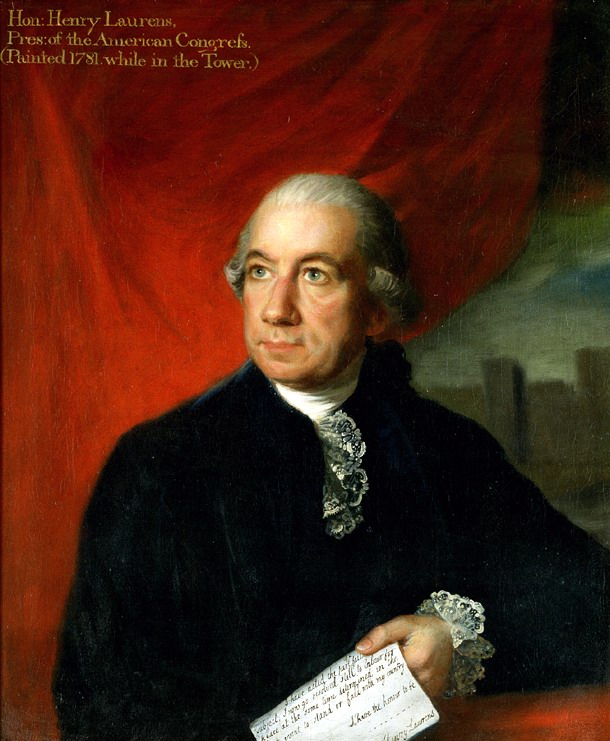
Henry Laurens (1724 - 1792) - Served from November 1, 1777 until December 9, 1778.
The only American president ever to be held as a prisoner of war by a foreign power, Laurens was heralded after he was released as "the father of our country," by no less a personage than George Washington. He was of Huguenot extraction, his ancestors having come to America from France after the revocation of the Edict of Nantes made the Reformed faith illegal. Raised and educated for a life of mercantilism at his home in Charleston, he also had the opportunity to spend more than a year in continental travel. It was while in Europe that he began to write revolutionary pamphlets - gaining him renown as a patriot. He served as vice-president of South Carolina in1776. He was then elected to the Continental Congress. He succeeded John Hancock as President of the newly independent but war beleaguered United States on November 1, 1777. He served until December 9, 1778 at which time he was appointed Ambassador to the Netherlands. Unfortunately for the cause of the young nation, he was captured by an English warship during his cross-Atlantic voyage and was confined to the Tower of London until the end of the war. After the Battle of Yorktown, the American government regained his freedom in a dramatic prisoner exchange - President Laurens for Lord Cornwallis. Ever the patriot, Laurens continued to serve his nation as one of the three representatives selected to negotiate terms at the Paris Peace Conference in 1782.
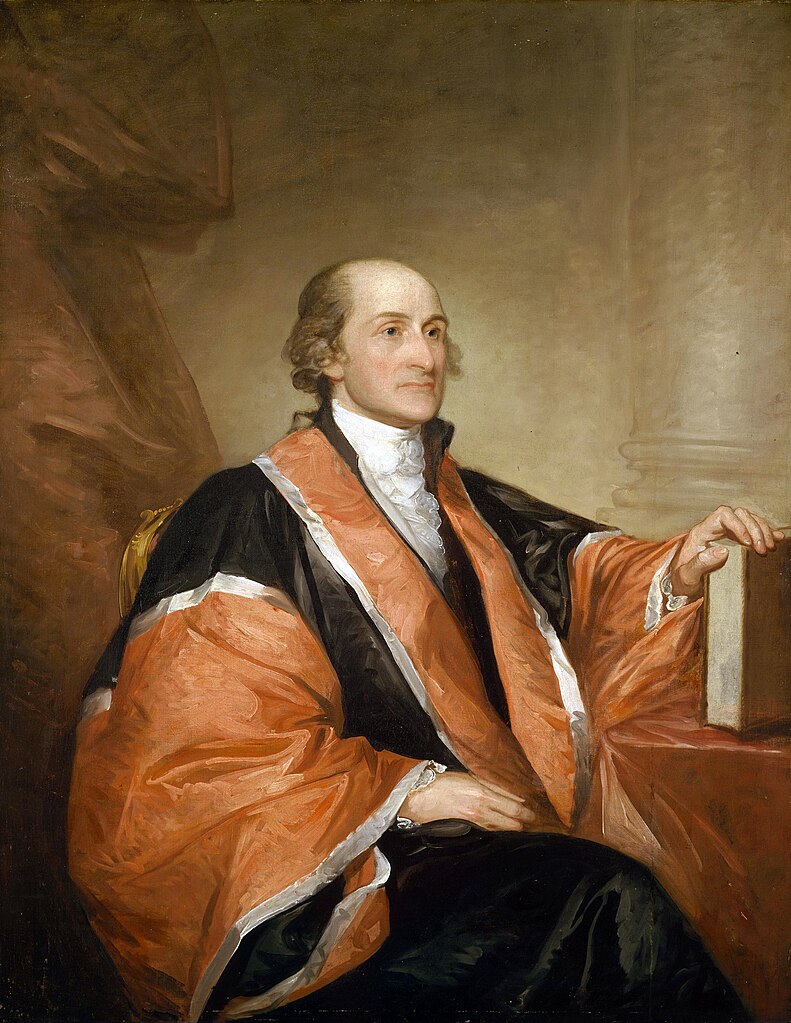
John Jay (1745 - 1829) - Served from December 10, 1778 to September 27, 1779.
America's first Secretary of State, first Chief Justice of the Supreme Court, one of its first ambassadors, and author of some of the celebrated Federalist Papers, Jay was a Founding Father who, by a quirk of fate, missed signing the Declaration of Independence - at the time of the vote for independence and the signing, he had temporarily left the Continental Congress to serve in New York's revolutionary legislature. Nevertheless, he was chosen by his peers to succeed Henry Laurens as President of the United States - serving a term from December 10, 1778 to September 27, 1779. A conservative New York lawyer who was at first against the idea of independence for the colonies, the aristocratic Jay in 1776 turned into a patriot who was willing to give the next twenty-five years of his life to help establish the new nation. During those years, he won the regard of his peers as a dedicated and accomplished statesman and a man of unwavering principle. In the Continental Congress Jay prepared addresses to the people of Canada and Great Britain. In New York he drafted the State constitution and served as Chief Justice during the war. He was President of the Continental Congress before he undertook the difficult assignment, as ambassador, of trying to gain support and funds from Spain. After helping Franklin, Jefferson, Adams, and Laurens complete peace negotiations in Paris in 1783, Jay returned to become the first Secretary of State, called "Secretary of Foreign Affairs" under the Articles of Confederation. He negotiated valuable commercial treaties with Russia and Morocco, and dealt with the continuing controversy with Britain and Spain over the southern and western boundaries of the United States. He proposed that America and Britain establish a joint commission to arbitrate disputes that remained after the war - a proposal which, though not adopted, influenced the government's use of arbitration and diplomacy in settling later international problems. In this post Jay felt keenly the weakness of the Articles of Confederation and was one of the first to advocate a new governmental compact. He wrote five Federalist Papers supporting the Constitution, and he was a leader in the New York ratification convention. As first Chief Justice of the Supreme Court, Jay made the historic decision that a State could be sued by a citizen from another State, which led to the Eleventh Amendment to the Constitution. On a special mission to London he concluded the "Jay Treaty," which helped avert a renewal of hostilities with Britain but won little popular favor at home - and it is probably for this treaty that this Founding Father is best remembered.
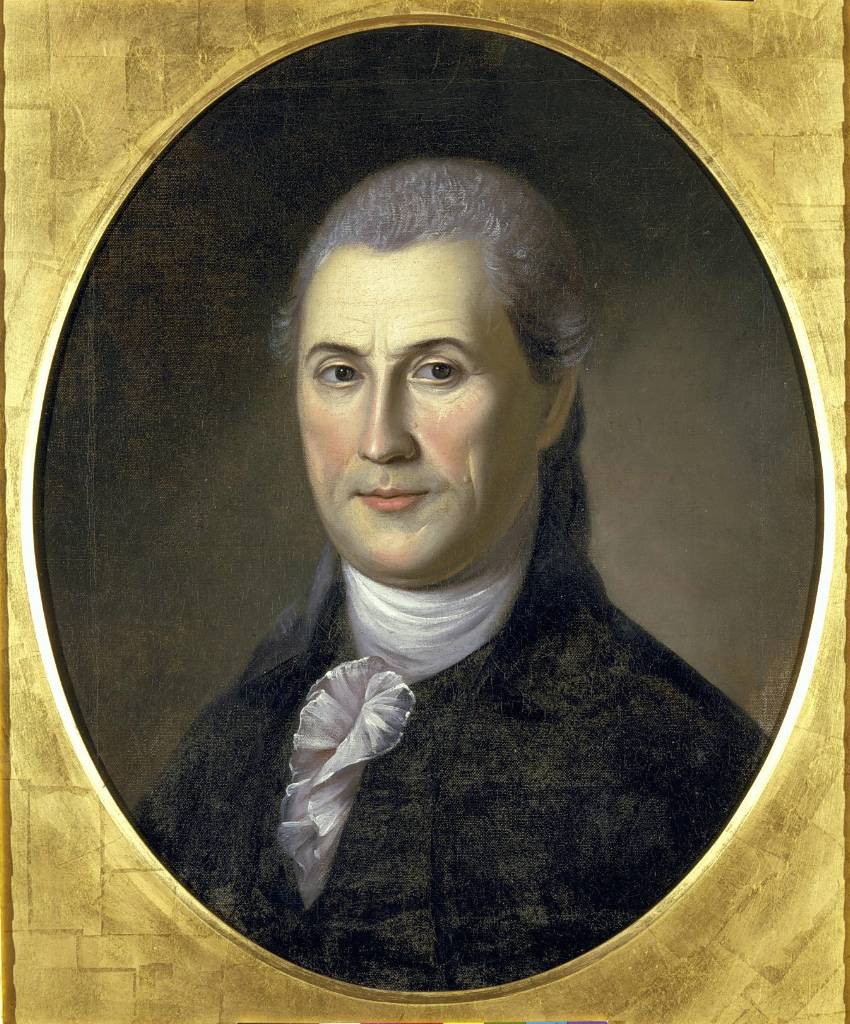
Samuel Huntington (1732 - 1796) - Served from September 28, 1779 until July 9, 1781.
An industrious youth who mastered his studies of the law without the advantage of a school, a tutor, or a master - borrowing books and snatching opportunities to read and research between odd jobs - he was one of the greatest self-made men among the Founders. He was also one of the greatest legal minds of the age - all the more remarkable for his lack of advantage as a youth. In 1764, in recognition of his obvious abilities and initiative, he was elected to the General Assembly of Connecticut. The next year he was chosen to serve on the Executive Council. In 1774 he was appointed Associate Judge of the Superior Court and, as a delegate to the Continental Congress, was acknowledged to be a legal scholar of some respect. He served in Congress for five consecutive terms, during the last of which he was elected President. He served in that office from September 28, 1779 until ill health forced him to resign on July 9, 1781. He returned to his home in Connecticut - and as he recuperated, he accepted more Counciliar and Bench duties. He again took his seat in Congress in 1783, but left it to become Chief Justice of his state's Superior Court. He was elected Lieutenant Governor in 1785 and Governor in 1786. According to John Jay, he was "one of the most precisely trained Christian jurists ever to serve his country."
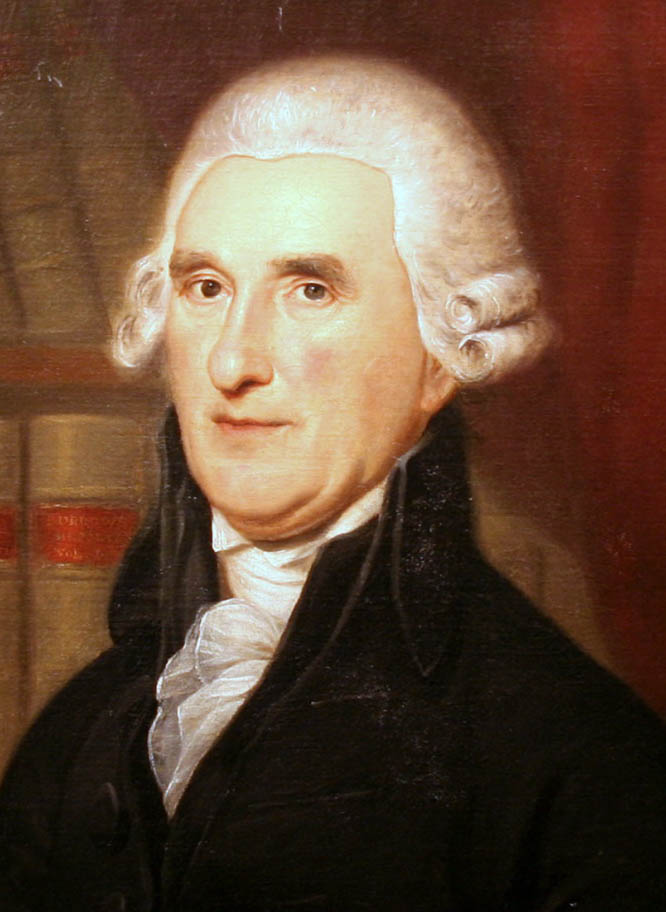
Thomas McKean (1734 - 1817) - Served from July 10, 1781 to November 4, 1781.
During his astonishingly varied fifty-year career in public life he held almost every possible position - from deputy county attorney to President of the United States under the Confederation. Besides signing the Declaration of Independence, he contributed significantly to the development and establishment of constitutional government in both his home state of Delaware and the nation. At the Stamp Act Congress he proposed the voting procedure that Congress adopted: that each colony, regardless of size or population, have one vote - the practice adopted by the Continental Congress and the Congress of the Confederation, and the principle of state equality manifest in the composition of the Senate. And as county judge in 1765, he defied the British by ordering his court to work only with documents that did not bear the hated stamps. In June 1776, at the Continental Congress, McKean joined with Caesar Rodney to register Delaware's approval of the Declaration of Independence, over the negative vote of the third Delaware delegate, George Read - permitting it to be "The unanimous declaration of the thirteen United States." And at a special Delaware convention, he drafted the constitution for that State. McKean also helped draft - and signed - the Articles of Confederation. It was during his tenure of service as President - from July 10, 1781 to November 4, 1781 - when news arrived from General Washington in October 1781 that the British had surrendered following the Battle of Yorktown. As Chief Justice of the supreme court of Pennsylvania, he contributed to the establishment of the legal system in that State, and, in 1787, he strongly supported the Constitution at the Pennsylvania Ratification Convention, declaring it "the best the world has yet seen." At sixty-five, after over forty years of public service, McKean resigned from his post as Chief Justice. A candidate on the Democratic-Republican ticket in 1799, McKean was elected Governor of Pennsylvania. As Governor, he followed such a strict policy of appointing only fellow Republicans to office that he became the father of the spoils system in America. He served three tempestuous terms as Governor, completing one of the longest continuous careers of public service of any of the Founding Fathers.
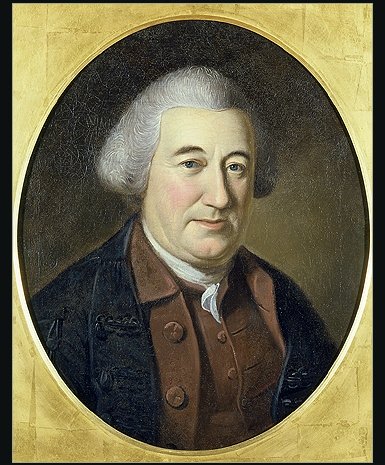
John Hanson (1715 - 1783) - Served from November 5, 1781 until November 3, 1782, first President of the United States under the Articles of Confederation.
He was the heir of one of the greatest family traditions in the colonies and became the patriarch of a long line of American patriots - his great grandfather died at Lutzen beside the great King Gustavus Aldophus of Sweden; his grandfather was one of the founders of New Sweden along the Delaware River in Maryland; one of his nephews was the military secretary to George Washington; another was a signer of the Declaration; still another was a signer of the Constitution; yet another was Governor of Maryland during the Revolution; and still another was a member of the first Congress; two sons were killed in action with the Continental Army; a grandson served as a member of Congress under the new Constitution; and another grandson was a Maryland Senator. Thus, even if Hanson had not served as President himself, he would have greatly contributed to the life of the nation through his ancestry and progeny. As a youngster he began a self-guided reading of classics and rather quickly became an acknowledged expert in the juridicalism of Anselm and the practical philosophy of Seneca - both of which were influential in the development of the political philosophy of the great leaders of the Reformation. It was based upon these legal and theological studies that the young planter - his farm, Mulberry Grove was just across the Potomac from Mount Vernon - began to espouse the cause of the patriots. In 1775 he was elected to the Provincial Legislature of Maryland. Then in 1777, he became a member of Congress where he distinguished himself as a brilliant administrator. Thus, he was elected President in 1781. He served in that office from November 5, 1781 until November 3, 1782. He was the first President to serve a full term after the full ratification of the Articles of Confederation - and like so many of the Southern and New England Founders, he was strongly opposed to the Constitution when it was first discussed. He remained a confirmed anti-federalist until his untimely death.
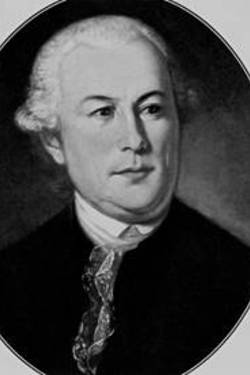
Elias Boudinot (1741 - 1802) - Served from November 4, 1782 until November 2, 1783.
He did not sign the Declaration, the Articles, or the Constitution. He did not serve in the Continental Army with distinction. He was not renowned for his legal mind or his political skills. He was instead a man who spent his entire career in foreign diplomacy. He earned the respect of his fellow patriots during the dangerous days following the traitorous action of Benedict Arnold. His deft handling of relations with Canada also earned him great praise. After being elected to the Congress from his home state of New Jersey, he served as the new nation's Secretary for Foreign Affairs - managing the influx of aid from France, Spain, and Holland. The in 1783 he was elected to the Presidency. He served in that office from November 4, 1782 until November 2, 1783. Like so many of the other early presidents, he was a classically trained scholar, of the Reformed faith, and an anti-federalist in political matters. He was the father and grandfather of frontiersmen - and one of his grandchildren and namesakes eventually became a leader of the Cherokee nation in its bid for independence from the sprawling expansion of the United States.
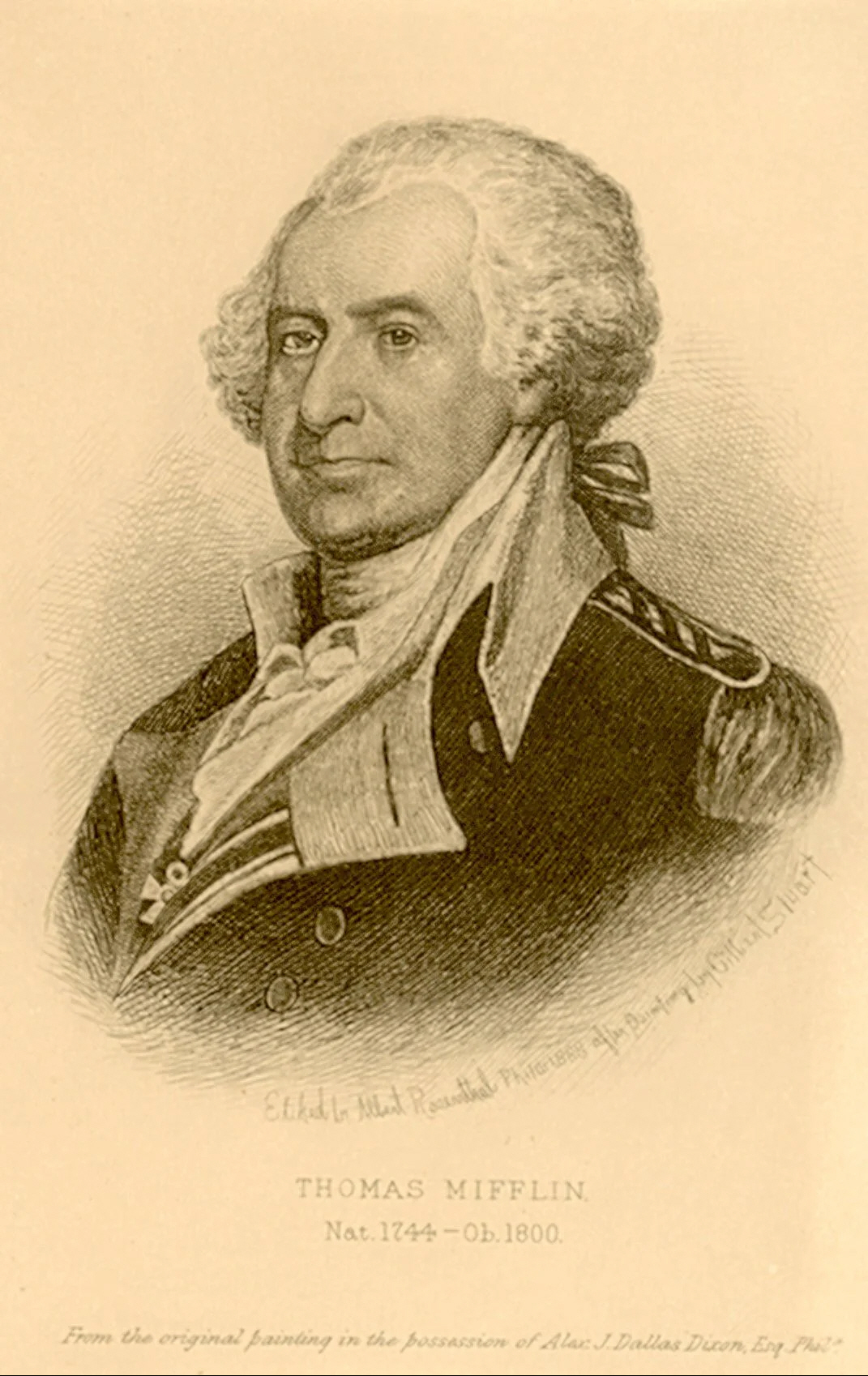
Thomas Mifflin (1744 - 1800) - Served from November 3, 1783 to November 29, 1784.
By an ironic sort of providence, Thomas Mifflin served as George Washington's first aide-de-camp at the beginning of the Revolutionary War, and, when the war was over, he was the man, as President of the United States, who accepted Washington's resignation of his commission. In the years between, Mifflin greatly served the cause of freedom - and, apparently, his own cause - while serving as the first Quartermaster General of the Continental Army. He obtained desperately needed supplies for the new army - and was suspected of making excessive profit himself. Although experienced in business and successful in obtaining supplies for the war, Mifflin preferred the front lines, and he distinguished himself in military actions on Long Island and near Philadelphia. Born and reared a Quaker, he was excluded from their meetings for his military activities. A controversial figure, Mifflin lost favor with Washington and was part of the Conway Cabal -a rather notorious plan to replace Washington with General Horatio Gates. And Mifflin narrowly missed court-martial action over his handling of funds by resigning his commission in 1778. In spite of these problems - and of repeated charges that he was a drunkard -Mifflin continued to be elected to positions of responsibility - as President and Governor of Pennsylvania, delegate to the Constitutional Convention, as well as the highest office in the land - where he served from November 3, 1783 to November 29, 1784. Most of Mifflin's significant contributions occurred in his earlier years - in the First and Second Continental Congresses he was firm in his stand for independence and for fighting for it, and he helped obtain both men and supplies for Washington's army in the early critical period. In 1784, as President, he signed the treaty with Great Britain which ended the war. Although a delegate to the Constitutional Convention, he did not make a significant contribution - beyond signing the document. As Governor of Pennsylvania, although he was accused of negligence, he supported improvements of roads, and reformed the State penal and judicial systems. He had gradually become sympathetic to Jefferson's principles regarding State's rights, even so, he directed the Pennsylvania militia to support the Federal tax collectors in the Whiskey Rebellion. In spite of charges of corruption, the affable Mifflin remained a popular figure. A magnetic personality and an effective speaker, he managed to hold a variety of elective offices for almost thirty years of the critical Revolutionary period.
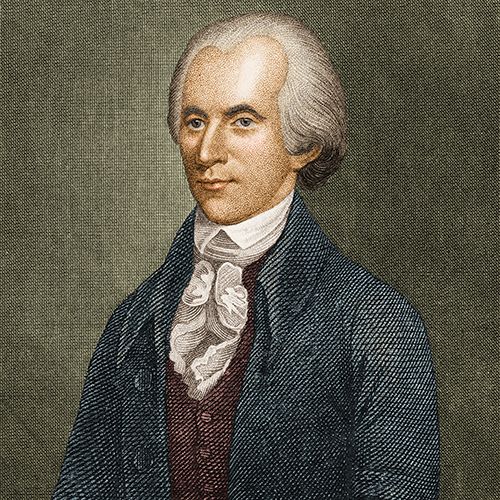
Richard Henry Lee (1732 - 1794) - Served from November 30, 1784 to November 22, 1785.
His resolution "that these United Colonies are, and of right ought to be, free and independent States," approved by the Continental Congress July 2, 1776, was the first official act of the United Colonies that set them irrevocably on the road to independence. It was not surprising that it came from Lee's pen - as early as 1768 he proposed the idea of committees of correspondence among the colonies, and in 1774 he proposed that the colonies meet in what became the Continental Congress. From the first, his eye was on independence. A wealthy Virginia planter whose ancestors had been granted extensive lands by King Charles II, Lee disdained the traditional aristocratic role and the aristocratic view. In the House of Burgesses he flatly denounced the practice of slavery. He saw independent America as "an asylum where the unhappy may find solace, and the persecuted repose." In 1764, when news of the proposed Stamp Act reached Virginia, Lee was a member of the committee of the House of Burgesses that drew up an address to the King, an official protest against such a tax. After the tax was established, Lee organized the citizens of his county into the Westmoreland Association, a group pledged to buy no British goods until the Stamp Act was repealed. At the First Continental Congress, Lee persuaded representatives from all the colonies to adopt this non-importation idea, leading to the formation of the Continental Association, which was one of the first steps toward union of the colonies. Lee also proposed to the First Continental Congress that a militia be organized and armed - the year before the first shots were fired at Lexington; but this and other proposals of his were considered too radical at the time. Three days after Lee introduced his resolution, in June of 1776, he was appointed by Congress to the committee responsible for drafting a declaration of independence, but he was called home when his wife fell ill, and his place was taken by his young prot‚g‚, Thomas Jefferson. Thus Lee missed the chance to draft the document, though his influence greatly shaped it and he was able to return in time to sign it. He was elected President - serving from November 30, 1784 to November 22, 1785 when he was succeeded by the second administration of John Hancock. Elected to the Constitutional Convention, Lee refused to attend, but as a member of the Congress of the Confederation, he contributed to another great document, the Northwest Ordinance, which provided for the formation of new States from the Northwest Territory. When the completed Constitution was sent to the States for ratification, Lee opposed it as anti-democratic and anti-Christian. However, as one of Virginia's first Senators, he helped assure passage of the amendments that, he felt, corrected many of the document's gravest faults - the Bill of Rights. He was the great uncle of Robert E. Lee and the scion of a great family tradition.
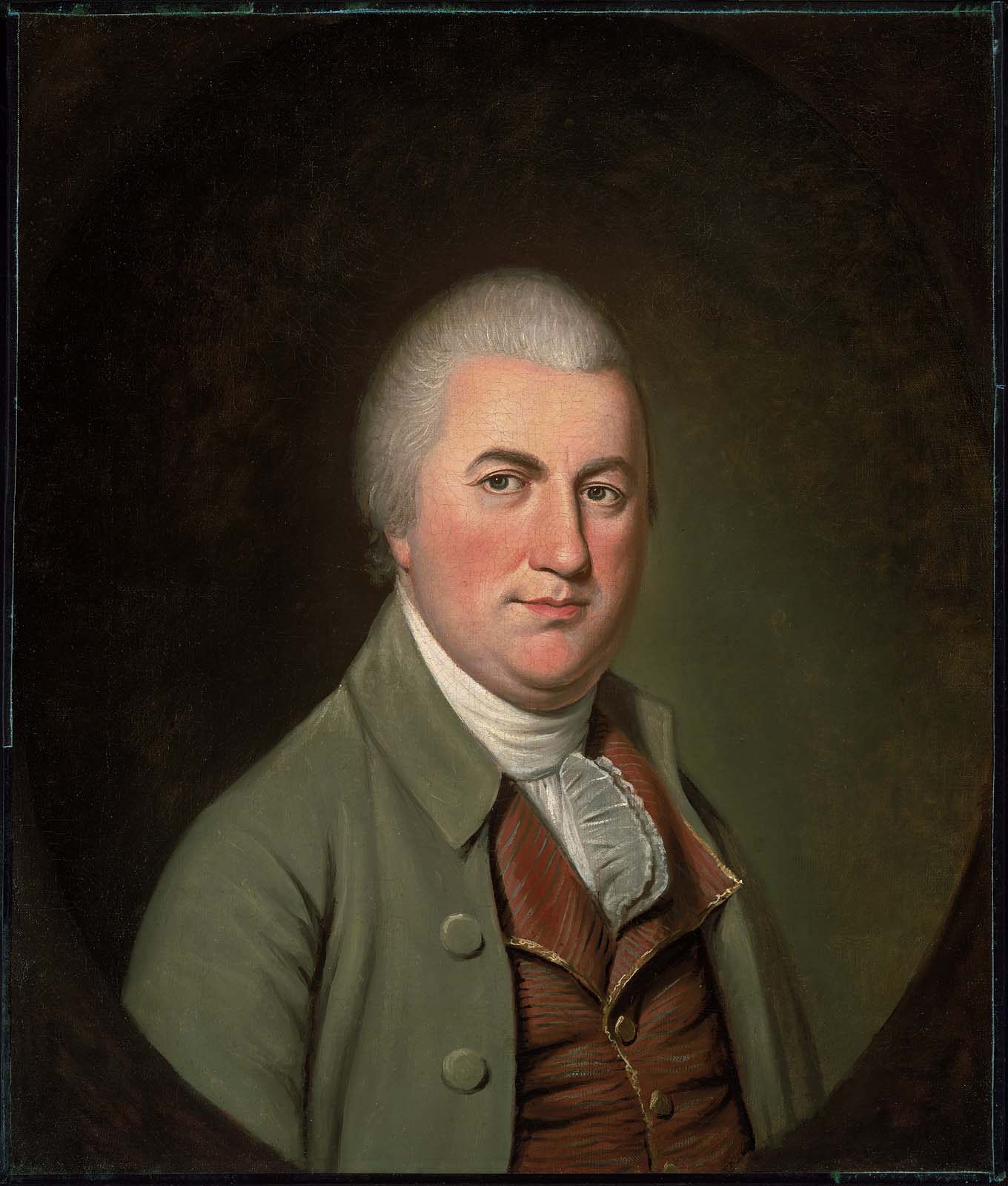
Nathaniel Gorham (1738 - 1796) - Served from June 6, 1786 to February 1, 1787.
Another self-made man, Gorham was one of the many successful Boston merchants who risked all he had for the cause of freedom. He was first elected to the Massachusetts General Court in 1771. His honesty and integrity won his acclaim and was thus among the first delegates chose to serve in the Continental Congress. He remained in public service throughout the war and into the Constitutional period, though his greatest contribution was his call for a stronger central government. But even though he was an avid federalist, he did not believe that the union could - or even should - be maintained peaceably for more than a hundred years. He was convinced that eventually, in order to avoid civil or cultural war, smaller regional interests should pursue an independent course. His support of a new constitution was rooted more in pragmatism than ideology. When John Hancock was unable to complete his second term as President, Gorham was elected to succeed him - serving from June 6, 1786 to February 1, 1787. It was during this time that the Congress actually entertained the idea of asking Prince Henry - the brother of Frederick II of Prussia - and Bonnie Prince Charlie - the leader of the ill-fated Scottish Jacobite Rising and heir of the Stuart royal line - to consider the possibility of establishing a constitutional monarch in America. It was a plan that had much to recommend it but eventually the advocates of republicanism held the day. During the final years of his life, Gorham was concerned with several speculative land deals which nearly cost him his entire fortune.
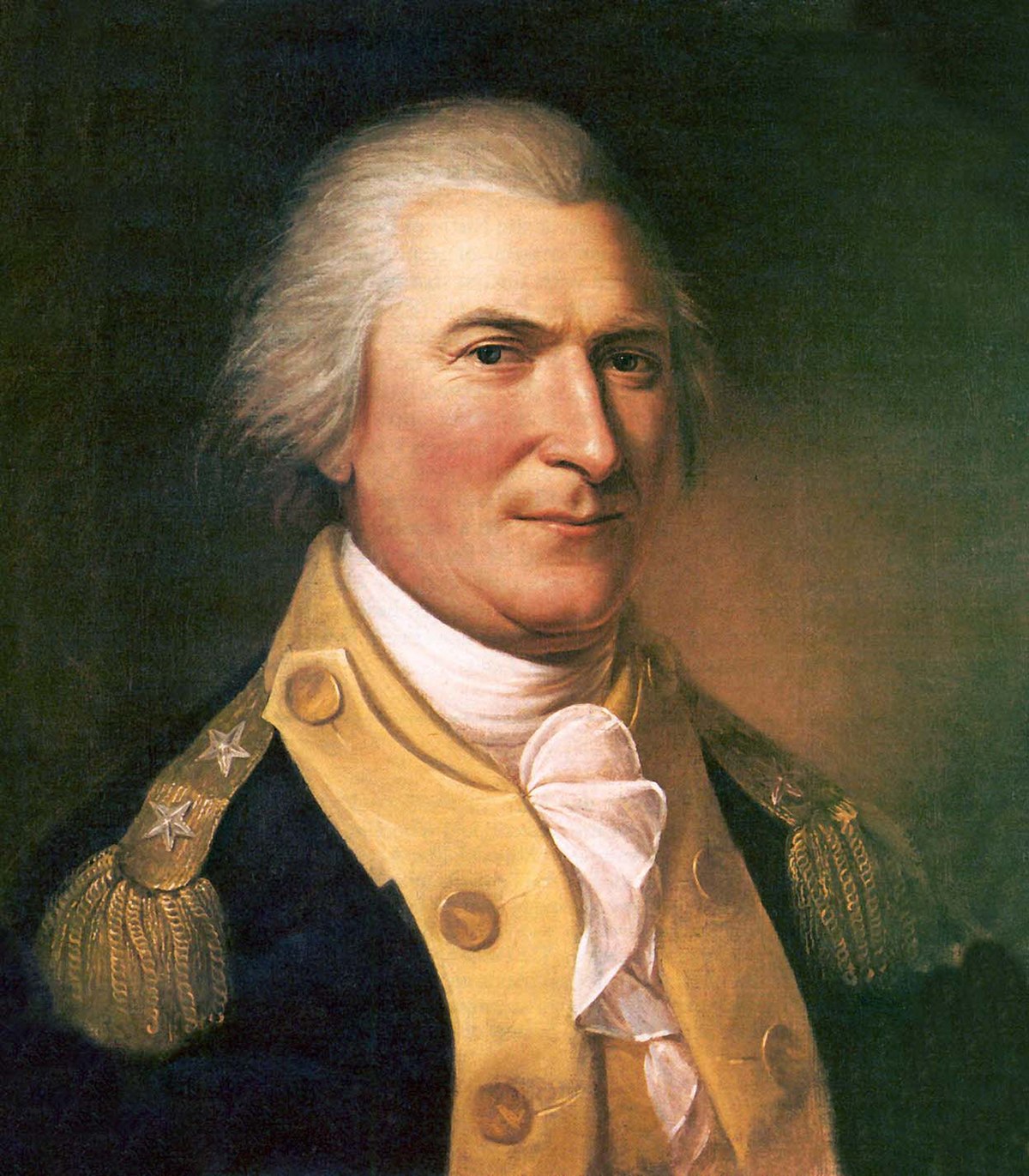
Arthur St. Clair (1734 - 1818) - Served from February 2, 1787 until January 21, 1788.
Born and educated in Edinburgh, Scotland during the tumultuous days of the final Jacobite Rising and the Tartan Suppression, St. Clair was the only president of the United States born and bred on foreign soil. Though most of his family and friends abandoned their devastated homeland in the years following the Battle of Culloden - after which nearly a third of the land was depopulated through emigration to America - he stayed behind to learn the ways of the hated Hanoverian English in the Royal Navy. His plan was to learn of the enemy's military might in order to fight another day. During the global conflict of the Seven Years War - generally known as the French and Indian War - he was stationed in the American theater. Afterward, he decided to settle in Pennsylvania where many of his kin had established themselves. His civic-mindedness quickly became apparent: he helped to organize both the New Jersey and the Pennsylvania militias, led the Continental Army's Canadian expedition, and was elected Congress. His long years of training in the enemy camp was finally paying off. He was elected President in 1787 - and he served from February 2 of that year until January 21 of the next. Following his term of duty in the highest office in the land, he became the first Governor of the Northwest Territory and the founder of Cincinnati. Though he briefly supported the idea of creating a constitutional monarchy under the Stuart's Bonnie Prince Charlie, he was a strident Anti-Federalist - believing that the proposed federal constitution would eventually allow for the intrusion of government into virtually every sphere and aspect of life. He even predicted that under the vastly expanded centralized power of the state the taxing powers of bureaucrats and other unelected officials would eventually confiscate as much as a quarter of the income of the citizens - a notion that seemed laughable at the time but that has proven to be ominously modest in light of our current governmental leviathan. St. Clair lived to see the hated English tyrants who destroyed his homeland defeated. But he despaired that his adopted home might actually create similar tyrannies and impose them upon themselves.
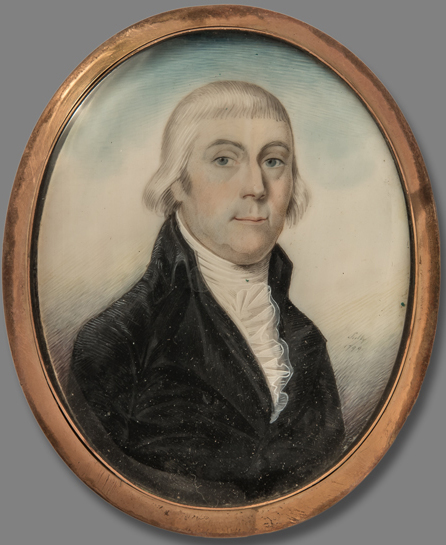
Cyrus Griffin (1736 - 1796) - Served as the nation's chief executive from January 22, 1788 until George Washington's inauguration as the 1st President under the new Constitution on March 4, 1789
Like Peyton Randolph, he was trained in London's Inner Temple to be a lawyer - and thus was counted among his nation's legal elite. Like so many other Virginians, he was an anti-federalist, though he eventually accepted the new Constitution with the promise of the Bill of Rights as a hedge against the establishment of an American monarchy - which still had a good deal of currency. The Articles of Confederation afforded such freedoms that he had become convinced that even with the incumbent loss of liberty, some new form of government would be required. A protégé of George Washington - having worked with him on several speculative land deals in the West - he was a reluctant supporter of the Constitutional ratifying process. It was during his term in the office of the Presidency - the last before the new national compact went into effect - that ratification was formalized and finalized.
![]()
![]()
![]()
Disclaimer:
Some material presented will contain links, quotes, ideologies, etc., the contents of which should be understood to first, in their whole, reflect the views or opinions of their editors, and second, are used in my personal research as "fair use" sources only, and not espousement one way or the other. Researching for 'truth' leads one all over the place...a piece here, a piece there. As a researcher, I hunt, gather and disassemble resources, trying to put all the pieces into a coherent and logical whole. I encourage you to do the same. And please remember, these pages are only my effort to collect all the pieces I can find and see if they properly fit into the 'reality aggregate'.
Personal Position:
I've come to realize that 'truth' boils down to what we 'believe' the facts we've gathered point to. We only 'know' what we've 'experienced' firsthand. Everything else - what we read, what we watch, what we hear - is what someone else's gathered facts point to and 'they' 'believe' is 'truth', so that 'truth' seems to change in direct proportion to newly gathered facts divided by applied plausibility. Though I believe there is 'truth', until someone representing the celestial realm visibly appears and presents the heavenly records of Facts And Lies In The Order They Happened, I can't know for sure exactly what "the whole truth' on any given subject is, and what applies to me applies to everyone. Until then I'll continue to ask, "what does The Urantia Book say on the subject?"
~Gail Bird Allen
![]()
![]()








-
Urantia Book, 44:0.11 - The Celestial Artisans
Never in your long ascendancy will you lose the power to recognize your associates of former existences. Always, as you ascend inward in the scale of life, will you retain the ability to recognize and fraternize with the fellow beings of your previous and lower levels of experience. Each new translation or resurrection will add one more group of spirit beings to your vision range without in the least depriving you of the ability to recognize your friends and fellows of former estates.
-
Princess Bride 1987 Wallace Shawn (Vizzini) and Mandy Patinkin (Inigo Montoya)
Vizzini: HE DIDN'T FALL? INCONCEIVABLE.
Inigo Montoya: You keep using that word. I do not think it means what you think it means. -
Urantia Book, 117:4.14 - The Finite God
And here is mystery: The more closely man approaches God through love, the greater the reality -- actuality -- of that man. The more man withdraws from God, the more nearly he approaches nonreality -- cessation of existence. When man consecrates his will to the doing of the Father's will, when man gives God all that he has, then does God make that man more than he is.
-
Urantia Book, 167:7.4 - The Talk About Angels
"And do you not remember that I said to you once before that, if you had your spiritual eyes anointed, you would then see the heavens opened and behold the angels of God ascending and descending? It is by the ministry of the angels that one world may be kept in touch with other worlds, for have I not repeatedly told you that I have other sheep not of this fold?"
-
Urantia Book, Foreword - 0:12.12 - The Trinities
But we know that there dwells within the human mind a fragment of God, and that there sojourns with the human soul the Spirit of Truth; and we further know that these spirit forces conspire to enable material man to grasp the reality of spiritual values and to comprehend the philosophy of universe meanings. But even more certainly we know that these spirits of the Divine Presence are able to assist man in the spiritual appropriation of all truth contributory to the enhancement of the ever-progressing reality of personal religious experience—God-consciousness.
-
Urantia Book, 1:4.3 - The Mystery Of God
When you are through down here, when your course has been run in temporary form on earth, when your trial trip in the flesh is finished, when the dust that composes the mortal tabernacle "returns to the earth whence it came"; then, it is revealed, the indwelling "Spirit shall return to God who gave it." There sojourns within each moral being of this planet a fragment of God, a part and parcel of divinity. It is not yet yours by right of possession, but it is designedly intended to be one with you if you survive the mortal existence.
-
Urantia Book, 1:4.1 - The Mystery Of God
And the greatest of all the unfathomable mysteries of God is the phenomenon of the divine indwelling of mortal minds. The manner in which the Universal Father sojourns with the creatures of time is the most profound of all universe mysteries; the divine presence in the mind of man is the mystery of mysteries.
-
Urantia Book, 1:4.6 - The Mystery Of God
To every spirit being and to every mortal creature in every sphere and on every world of the universe of universes, the Universal Father reveals all of his gracious and divine self that can be discerned or comprehended by such spirit beings and by such mortal creatures. God is no respecter of persons, either spiritual or material. The divine presence which any child of the universe enjoys at any given moment is limited only by the capacity of such a creature to receive and to discern the spirit actualities of the supermaterial world.
-
Urantia Book, 11:0.1 - The Eternal Isle Of Paradise
Paradise is the eternal center of the universe of universes and the abiding place of the Universal Father, the Eternal Son, the Infinite Spirit, and their divine co-ordinates and associates. This central Isle is the most gigantic organized body of cosmic reality in all the master universe. Paradise is a material sphere as well as a spiritual abode. All of the intelligent creation of the Universal Father is domiciled on material abodes; hence must the absolute controlling center also be material, literal. And again it should be reiterated that spirit things and spiritual beings are real.
-
Urantia Book, 50:6.4 - Planetary Culture
Culture presupposes quality of mind; culture cannot be enhanced unless mind is elevated. Superior intellect will seek a noble culture and find some way to attain such a goal. Inferior minds will spurn the highest culture even when presented to them ready-made.
-
Urantia Book, 54:1.6 - True And False Liberty
True liberty is the associate of genuine self-respect; false liberty is the consort of self-admiration. True liberty is the fruit of self-control; false liberty, the assumption of self-assertion. Self-control leads to altruistic service; self-admiration tends towards the exploitation of others for the selfish aggrandizement of such a mistaken individual as is willing to sacrifice righteous attainment for the sake of possessing unjust power over his fellow beings.
-
Urantia Book, 54:1.9 - True And False Liberty
How dare the self-willed creature encroach upon the rights of his fellows in the name of personal liberty when the Supreme Rulers of the universe stand back in merciful respect for these prerogatives of will and potentials of personality! No being, in the exercise of his supposed personal liberty, has a right to deprive any other being of those privileges of existence conferred by the Creators and duly respected by all their loyal associates, subordinates, and subjects.
-
Urantia Book, 54:1.8 - True And False Liberty
There is no error greater than that species of self-deception which leads intelligent beings to crave the exercise of power over other beings for the purpose of depriving these persons of their natural liberties. The golden rule of human fairness cries out against all such fraud, unfairness, selfishness, and unrighteousness.

